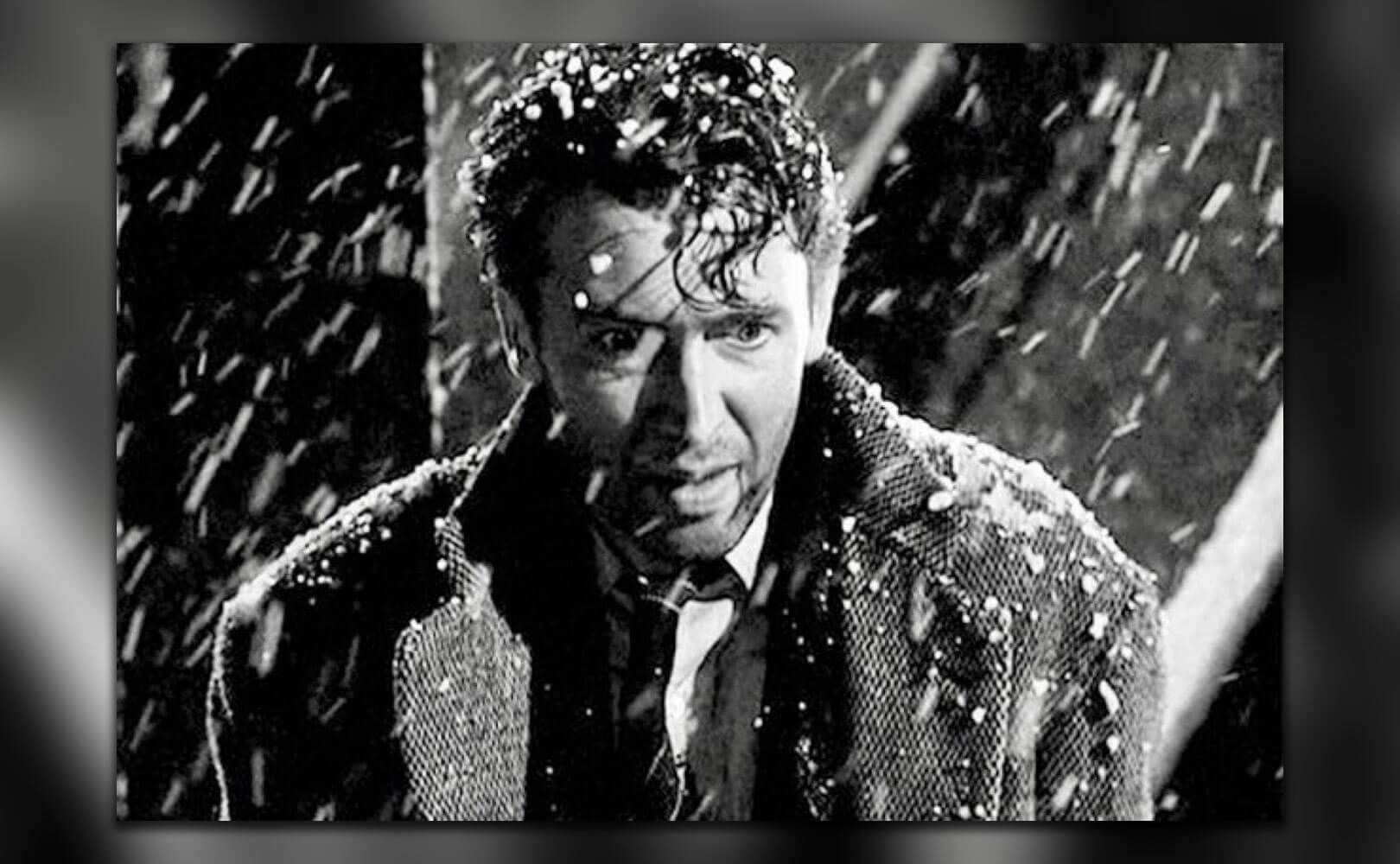There is a classic scene in Frank Capra’s It’s a Wonderful Life where George Bailey tells his guardian angel, Clarence, “I wish I’d never been born.” That is a statement which some others have likely uttered at some point in 2020. George is at the end of his rope; he has watched friends outpace him in education and business; despite boyhood ambitions of travel and adventure, he has spent his life in his hometown of Bedford Falls, working for the family business; and his uncle has lost thousands of dollars in what appears to be a financial scandal for which George will be held accountable. After appealing to God for help George receives what he takes to be “a bust in the jaw in answer to a prayer.” George is struggling with the apparent contradiction between the existence of suffering and the existence of God. If God is all-powerful and all-loving, why does he allow people to suffer? Like the impenitent thief said: “If thou be Christ, save thyself and us.”
As Peter Kreeft notes in Making Sense Out of Suffering, our society has not done what the title of his book proposes to. We are offered countless ways to mitigate physical and emotional pain; we enjoy longer and more prosperous lives than most people in human history; but many of us are unable to cope with spiritual pain and, like George Bailey, come to resent God because of that.
Kreeft identifies a fundamental misunderstanding of modern society, that suffering is something which can be avoided. Kreeft cites the Four Noble Truths of Buddhism, the first of which is dukkha – life is suffering. But rather than a cause for hopelessness, or evidence vindicating atheism, suffering is actually proof that God exists. Like C.S. Lewis said, evil must exist, have intelligence and free will, but existence, intelligence and free-will are good things. Good is necessary for evil, but evil is not necessary for good. Suffering, while evil, is requisite for a good existence, because without suffering we would have no way of knowing pleasure. Borrowing from Tolkien, Kreeft says that the greatest stories need monsters and mysteries, which is why the greatest storytellers are people who have encountered both. We are all creators because we decide the story of our lives, and without suffering, those stories would be unreadable.
Chesterton writes that “The man who kills himself kills all men. As far as he is concerned, he wipes out the world.” George discovers this when God grants his wish. A world still exists, but it is infinitely worse without George; his brother is dead, his mother grief-stricken and bitter; his wife childless, unmarried and lonely. Meanwhile, quaint Bedford Falls has devolved into debauched Pottersville.
After seeing what the world would be like without him, a repentant George begs God for his life back. His wish is granted and, through the kindness of friends he is able to raise enough money to avoid prison and to save his business. At the denouement George’s life is still far from perfect, but oddly it is suffering and not perfection which has made his life wonderful. If George had not sacrificed his own ambition to the people of Bedford Falls, he would not have had friends to bail him out; had he not suffered through feelings of inadequacy and self-doubt, there would have been no one standing in the lurch to save the town from devolution and corruption; had he not sacrificed his own college education to his brother Harry, Harry may never have become a decorated war hero who saved numerous other lives.
There is, of course, a more cynical interpretation on offer. Before the financial scandal George is invited to meet with Henry F. Potter, “the richest and meanest” man in Bedford Falls, who is hellbent on destroying the Bailey Building and Loan to enrich himself by monopolizing the town’s real estate market. Potter offers George what appears to be a solution to all his problems: a prestigious job, an impressive salary, national and international business trips. Potter offers George an easy solution to suffering, something which God does not. Why does George refuse?
Many writers have conceived of a villain whose treachery lies not in the suffering they cause but the suffering they ostensibly alleviate. Vladimir Sololyov’s “anti-Christ” says: “Christ, who preached and practiced moral good in life, was a reformer of humanity, whereas I am called to be the benefactor of that same humanity…I will give everyone what they require.” Similarly, Dostoevsky’s Grand Inquisitor says that Jesus is cruel because he has given man the intolerable burden of freedom; the Inquisitor is kind because he relieves men of that burden (by killing them). There are similar figures in real life, such as Bill Gates and Steven Pinker, who posit that modern man’s highest achievement will be to bring an end to suffering. COVID-19 lockdowns in some jurisdictions are something of a case study; when people stay cloistered inside their homes they will likely avoid suffering from any virus, but they will not be fully human because they will have been deprived of an essential ingredient of the human experience.
Of course, we should be grateful for modern medicine and for our ability to alleviate unnecessary suffering. We should be cautious in the face of an unpredictable disease and do what we can to protect the most vulnerable from it. We should not, however, fall victim to the illusion that suffering can (or indeed, should) be prevented wholesale. If we believe that suffering is conquerable, we will invariably feel cheated when we discover that it is not. That is a recipe for bitterness and resentment, which we will, like George, direct at Him who deserves nothing but gratitude – the one who gave us life, free will, a conscience – those things which facilitate our suffering but which also allow us to find meaning in the process.


